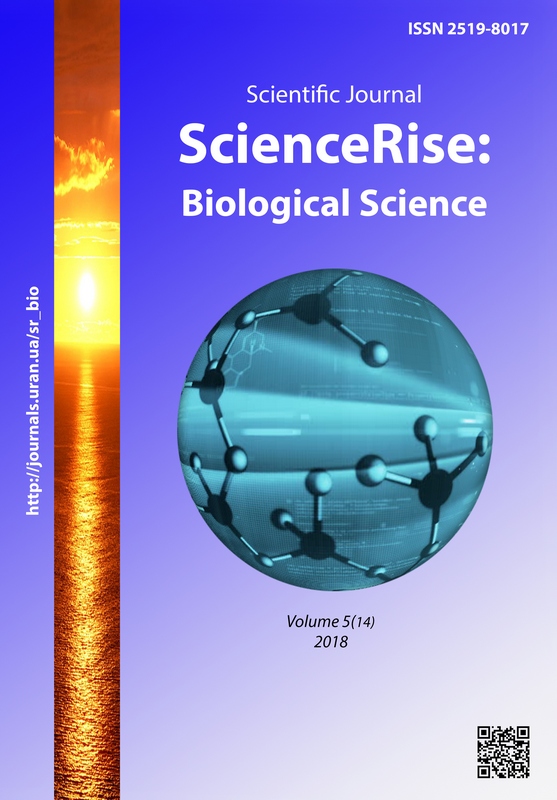Dynamics of anxiety of participants of united forces operation
DOI:
https://doi.org/10.15587/2519-8025.2018.146930Keywords:
diagnosis of posttraumatic syndrome, reactive anxiety, personality anxiety, depression, combatant, united forces operationAbstract
The purpose of the work - to investigate features of a psychological state of the participants in the united forces operation that were in the east of our state on the second line of defense for four months.
Materials and research methods. Questionnaires of fighters-contractors according to the methods: "Scale of reactive and personal anxiety Ch.D. Spielberger - Yu.L. Khanina "and the Beck Depression Inventory (BDI) questionnaire. The study was conducted in the first days after arriving at the location site, two months in the zone of the united forces operation and two weeks after returning from the war zone. The study was conducted on the basis of 177 separate radar platoon (Lisichansk, Lugansk region) with combatants-volunteers from April to August 2018.
Simulation Results. As a result of the study, there were established a predominantly moderate level of reactive and personal anxiety and the absence of signs of depression at the beginning of the assignment and during the stay in the area of the operation. There was an increase in the level of anxiety and the appearance of signs of depression after returning from the combat zone. The analysis of the main problems of the participants of the operation of the combined forces arising from the return to the conditions of peaceful life (violation of the rights to social guarantees, bureaucratic problems when applying for benefits) has been carried out.
Conclusions. Thus, in the first days of arrival in the combat zone, the combatants are dominated by the average level of reactive and personal anxiety, and there are no signs of depression. After two months of performing combat missions, the level of reactive and situational anxiety among combatants remains within the average indicators, the participants of the study have no signs of depression, which allows to conclude that a high adaptive level is achieved. Two weeks after returning from the combat zone, most combatants increase the level of reactive anxiety and show signs of mild depression. The prospect of further research is seen in the development of effective methods for the physical and psychological rehabilitation of combatants in order to increase their adaptive capabilities upon returning from the environmentReferences
- Timchenko, V. O. (2017). Psykholohichni naslidky perebuvannia riatuvalnykiv u zoni provedennia antyterorystychnoi operatsii. Kharkiv, 81.
- Shvets, A. V., Khoroshun, E. M., Koval, O. V., Lukianchuk, I. A., Chaikovskyi, A. R. (2016). Medychni zakhody z poperedzhennia presuitsydalnykh form povedinky viiskovosluzhbovtsiv v umovakh voiennoho konfliktu ta pislia yoho zavershennia. Kyiv, 59.
- Timchenko, V. O. (2015). Refleks prydushennia abo shcho zavazhaie veteranam ATO povernutysia do zvychainoho myrnoho zhyttia. Problemy ekstremalnoi ta kryzovoi psykholohii, 18, 234–243.
- Leskov, V. O. (2006). Psykholohichna reabilitatsiia viiskovosluzhbovtsiv zapasu v systemi minimizatsii vyiaviv nehatyvnykh psykholohichnykh naslidkiv lokalnykh voiennykh konfliktiv. Zbirnyk naukovykh prats instytutu psykholohii im. H. S. Kostiuka APN Ukrainy, VIII (3), 191–197.
- Paroniants, T. P. (2004). Vynyknennia i proiav pisliatravmatychnykh stresovykh rozladiv u pratsivnykiv orhaniv vnutrishnikh sprav v umovakh vykonannia myrotvorchoi misii OON (na prykladi kolyshnoi Yuhoslavii). Kharkiv, 18.
- Mushkevych, M. (2015). Volyn: yak dopomohty viiskovomu ta yoho simi reabilituvatysia. Available at: http://www.volynnews.com/news/vidsichagresoruukrayinayedina/volynski-atoshnyky-ne-skhylni-do-suyitsydu-ale-yim-potribna-dopomoha/
- Popeliushko, R. P. (2017). Rezultaty doslidzhennia psykholohichnykh osoblyvostei kombatantiv do ta pislia uchasti u boiovykh diiakh. Innovative solutions in modern science, 5 (14), 78–91.
- Kharchenko, O., Mramornova, O. (2016). Problemy veteraniv antyterorystychnoi operatsii na skhodi Ukrainy. Visnyk KhNU imeni V. N. Karazina. Seriia «Sotsiolohichni doslidzhennia suchasnoho suspilstva: metodolohiia, teoriia, metody», 37, 115–124.
- Bukovska, O. O. (2015). Psykholohichna dopomoha simiam viiskovosluzhbovtsiv, yaki povertaiutsia iz zony boiovykh dii. Visnyk Chernihivskoho natsionalnoho pedahohichnoho universytetu im. T. H. Shevchenka, 128, 29–32.
- Ahaiev, N. A., Kokun, O. M., Pishko, I. O., Lozinska, N. S., Ostapchuk, V. V., Tkachenko, V. V. (2016). Zbirnyk metodyk dlia diahnostyky nehatyvnykh psykhichnykh staniv viiskovosluzhbovtsiv. Kyiv: NDTs HP ZSU, 234.
Downloads
Published
How to Cite
Issue
Section
License
Copyright (c) 2018 Boiarska Zoryna, Roman Pinchuk

This work is licensed under a Creative Commons Attribution 4.0 International License.
Our journal abides by the Creative Commons CC BY copyright rights and permissions for open access journals.
Authors, who are published in this journal, agree to the following conditions:
1. The authors reserve the right to authorship of the work and pass the first publication right of this work to the journal under the terms of a Creative Commons CC BY, which allows others to freely distribute the published research with the obligatory reference to the authors of the original work and the first publication of the work in this journal.
2. The authors have the right to conclude separate supplement agreements that relate to non-exclusive work distribution in the form in which it has been published by the journal (for example, to upload the work to the online storage of the journal or publish it as part of a monograph), provided that the reference to the first publication of the work in this journal is included.









